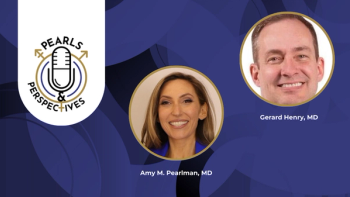
Research evaluates sexual QOL in female partners of patients with prostate cancer
Key Takeaways
- Prostate cancer significantly affects female partners' sexual quality of life, causing grief, isolation, and communication issues.
- The study aims to create a comprehensive questionnaire to assess these impacts, as current tools are insufficient.
"We were actually interested in looking at what was the impact of prostate cancer on sexual quality of life for female partners of patients," says Stacy Loeb, MD, MSc, PhD (hon).
In this video, Stacy Loeb, MD, MSc, PhD (hon), gives an overview of the study “Impact of Prostate Cancer on Sexual Quality of Life for Female Partners of Patients,” which she presented at the 2024 Sexual Medicine Society of North America Fall Scientific Meeting in Scottsdale, Arizona. Loeb is a professor in the departments of urology and population health at NYU Grossman School of Medicine and Perlmutter Cancer Center in New York.
Transcription:
Please provide an overview of this study and its notable findings.
In this study, we were actually interested in looking at what was the impact of prostate cancer on sexual quality of life for female partners of patients, rather than for the patients themselves, which has been what the vast majority of the research has focused on. But this really is a so-called couples disease. One of our collaborators for many years has been focusing on the impact for gay and bisexual couples. In our study, we chose then to complement this by looking at the impact for female partners of patients with prostate cancer. The findings were really quite profound in terms of the number of ways that this has impacted them, everything from feeling of grief over the loss of familiar sexual activity, isolation from their partner, or even feeling rejected by their partner who was no longer initiating sexual activity. Also, issues with communication and relationship dynamic, people just having a really hard time expressing how they're feeling about their current sex life with their partner, so really a wide array of domains that were being impacted. Our goal in this study was actually to create and validate a questionnaire to assess the sexual quality of life for female partners of patients that would capture all of these domains that are really not captured on any current instruments that exist. For example, there are questionnaires like the Female Sexual Function Index that measure things like sexual function in females, but that don't include all of these other aspects that I mentioned that are occurring here, like the feelings of grief or isolation. Another key thing that came out, actually, that is actionable for this audience is that people really did not feel like they got enough counseling ahead of time about the sexual impact of prostate cancer therapies. And also, the partners of patients really didn't feel like they were included in the clinical encounter. Some felt like they were ignored by the physicians or their needs and interests were not considered at all here. I think these are some important take-home messages for myself and others in the field of urology to make sure that we really are addressing all members of couples who are there, and since it actually can impact both of them, not just the person who is our patient.
This transcript was AI generated and edited by human editors for clarity.
Newsletter
Stay current with the latest urology news and practice-changing insights — sign up now for the essential updates every urologist needs.






